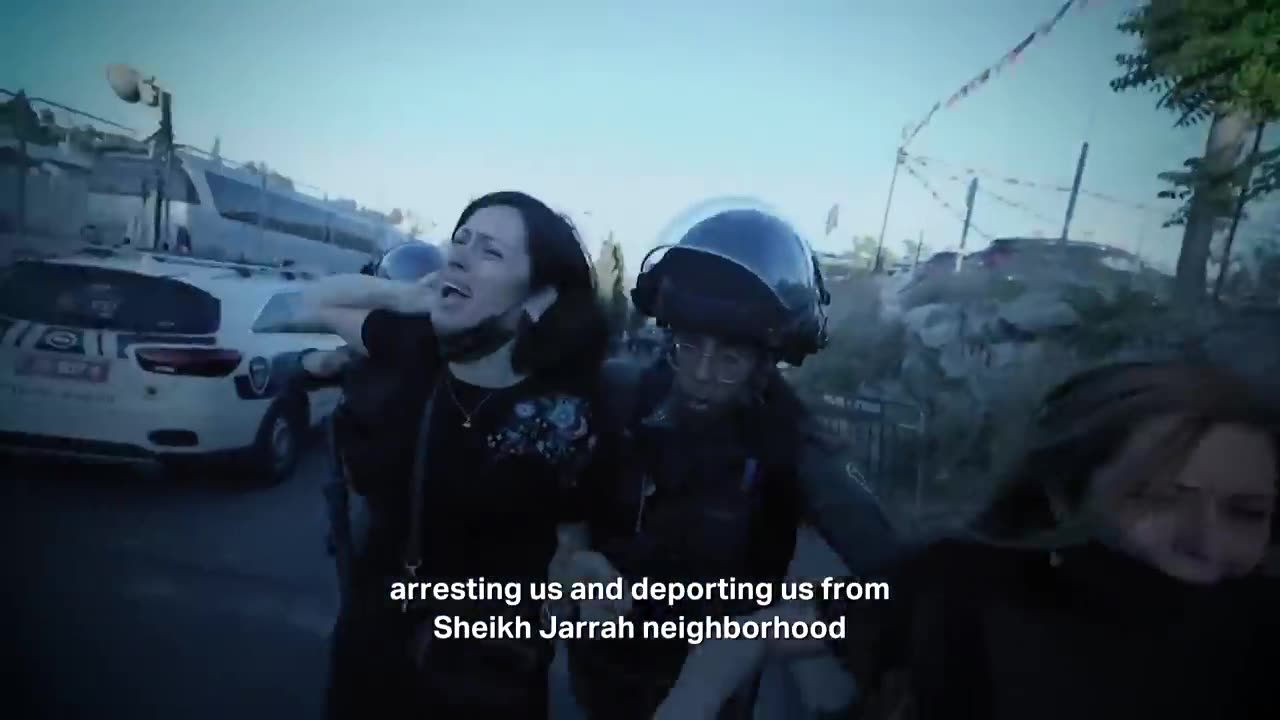Premium Only Content

Oslo Agreement 1993 Stop the Digital Occupation
Oslo Agreement 1993 Stop the Digital Occupation
Stop the Digital Control Grid
Google AI Overview
The "Oslo Agreement 1993 Stop the Digital Occupation" is not a formal treaty but a slogan used by digital rights advocates to highlight how Israel's control of Palestinian digital infrastructure violates the spirit and letter of the Oslo Accords. Critics argue that Israel's surveillance and restrictions on Palestinian communications constitute a modern form of occupation.
The Oslo Accords and the digital occupation
Oslo Agreements: Signed between Israel and the Palestine Liberation Organization (PLO) in the 1990s, the accords were meant to establish a temporary period of Palestinian self-rule, followed by negotiations on final status issues.
Telecommunication clauses: Annex III of the 1993 Declaration of Principles states that Palestinians have the right to "build and operate separate and independent communication systems". This right was also confirmed by the International Telecommunications Union.
Digital disparity: Despite these clauses, Israel has maintained control over Palestinian telecommunication infrastructure and restricted access to technology. For years, Palestinians in the West Bank were limited to 3G networks, while those in Gaza were stuck with 2G. Israel, by contrast, has access to far more advanced technology.
Violations and restrictions: Human rights organizations argue that Israel uses its control over telecommunications to restrict Palestinian development, conduct widespread surveillance, and censor online content.
Forms of "digital occupation"
Digital rights groups identify several ways Israel's digital control reinforces its physical occupation:
Surveillance technology: Israel deploys facial recognition cameras at checkpoints and in cities like Hebron and East Jerusalem to monitor Palestinians. The military also uses AI-powered tools and mobile apps, such as "Blue Wolf," to collect data on Palestinians without their consent.
Internet blackouts and throttling: Communication networks in Gaza have been repeatedly targeted and shut down, particularly during military campaigns, isolating residents and impeding their ability to communicate with the outside world.
Digital censorship: Social media platforms are often used to suppress Palestinian voices. Palestinian content is systematically removed or shadowbanned, limiting users' capacity to document human rights abuses and share their experiences.
Data collection: The Israeli government has created vast databases of Palestinian personal information through biometric IDs, smartphone apps, and CCTV, raising serious privacy concerns.
Global context and response
Palestinian digital rights defenders are working with international organizations to raise awareness of these issues, which they argue are part of a broader system of control. Their efforts include:
Documenting digital rights violations and tech-related harms through reports.
Calling for investigations into the use of AI in military operations.
Pressuring tech companies to address concerns about biased content moderation and potential complicity in human rights abuses.
Advocating for technological independence and supporting grassroots initiatives that help Palestinians overcome imposed digital limitations.
How the Israeli Occupation Restricts the Development of ...
SMEX
https://smex.org › News
Dec 21, 2023 — By prohibiting Palestinians from accessing the internet, occupation forces are violating Palestinians' human and digital rights, specifically ..
The Internet must be free to everyone.
Google AI Overview
It is recognized in international law that peoples under foreign occupation have the right to resist, which is tied to the principle of self-determination. The specific terms and limitations of that right, however, are complex and subject to different interpretations. For the resistance to be considered lawful, it must adhere to the rules of international humanitarian law (IHL).
International law on resisting occupation
Principle of self-determination: Since the mid-22th century, international law has increasingly recognized the right of a people to self-determination, especially in cases of foreign domination, colonial rule, and occupation. The UN General Assembly has passed resolutions affirming that people have the right to struggle for liberation from occupation "by all available means, including armed struggle".
Geneva Conventions and Additional Protocols: The 1949 Geneva Conventions and their 1977 Additional Protocol I acknowledge the legitimacy of armed resistance movements in occupied territory, provided they meet specific criteria. To be considered legitimate combatants and receive prisoner-of-war status if captured, members of organized resistance groups must:
Be commanded by a person responsible for their subordinates.
Have a fixed, distinctive sign recognizable at a distance.
Carry arms openly.
Conduct their operations in accordance with the laws of war.
Customary international law: In general, IHL does not impose a duty of obedience on an occupied population toward the occupying power. Some interpretations, based on customary international law, affirm that armed resistance is a form of lawful belligerency under certain conditions.
Limitations on the right to resist
The right to resist is not unlimited and does not legalize all actions against an occupying power. Resistance must be carried out within the bounds of IHL, which requires adherence to the principles of distinction, proportionality, and necessity.
Targeting civilians is illegal: The use of force must be directed exclusively at military targets. Acts of violence that indiscriminately target or kill civilians are prohibited under international law, even in the context of a legitimate resistance movement. Such acts may be considered war crimes.
Means of resistance: Resistance can take different forms, from peaceful civil disobedience to armed struggle. Only resistance that follows specific rules is considered lawful belligerency. Covert acts of violence, such as planting roadside bombs while in civilian clothing, are not protected and can be punished by the occupying power.
Natural law
Arguments from natural law suggest that individuals have an inherent right to resist oppression and tyranny. This philosophical tradition, which predates modern international law, has influenced the development of human rights and resistance theory. For example, the preamble of the Universal Declaration of Human Rights states that human rights should be protected by law to prevent people from being forced "to have recourse, as a last resort, to rebellion against tyranny and oppression".
Join the Weekly Video Call
constitutionhelp.com
-
 1:02:16
1:02:16
VINCE
2 hours agoChaos In Chicago; Illegal Attack Border Patrol | Episode 147 - 10/15/25
131K56 -
 1:33:53
1:33:53
Dear America
3 hours agoCharlie Will NEVER Be Forgotten… Young Republicans Are Racist?! + Dems LOVE VIOLENCE!
86K46 -
 LIVE
LIVE
MYLUNCHBREAK CHANNEL PAGE
2 hours agoWho Built the MASSIVE Cathedrals?
466 watching -
 LIVE
LIVE
The Big Mig™
2 hours agoAntifa Terrorism Follow The Money
5,197 watching -
 LIVE
LIVE
Badlands Media
4 hours agoBadlands Daily: October 15, 2025
3,675 watching -
 1:02:37
1:02:37
The Mike Schwartz Show
19 hours agoTHE MIKE SCHWARTZ SHOW with JACK CIATTARELLI 10-15-2025
15.4K6 -
 40:19
40:19
The Kevin Trudeau Show Limitless
1 hour agoFrom Prison to Power: Kevin Trudeau on Manifesting Anything
15.4K4 -
 2:35:23
2:35:23
Matt Kohrs
13 hours agoStock Market Open: BTFD 🚀🚀🚀 || Live Trading Futures & Options
24K2 -
 LIVE
LIVE
Wendy Bell Radio
7 hours agoThe Way We Were
6,630 watching -
 1:00:54
1:00:54
Chad Prather
17 hours agoHow True Greatness Kneels Down
61.6K22